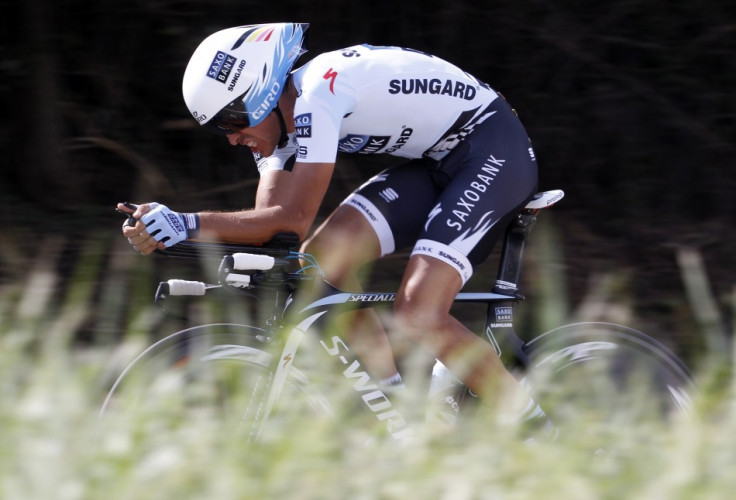Alberto Contador Banned and Stripped of 2010 Tour de France Title
Alberto Contador has been banned for two years by the Court of Arbitration for his positive test for clenbuterol

The three times Tour de France winner Alberto Contador has been banned for two years by the Court of Arbitration for his positive test for clenbuterol, according to the International Cycling Union.
The Spanish cyclist tested positive for the doping offence during his 39-second victory over Andy Schleck in the Tour in 2010.
The aforementioned Luxembourg born 26-year-old has subsequently inherited Contador's title after a three-man panel from The Court of Arbitration for Sport (CAS), upheld appeals by the International Cycling Union (UCI) and World Anti-Doping Agency (Wada), which challenged a Spanish Cycling Federation tribunal's decision to exonerate the 29-year-old on the grounds the positive test was caused by consuming contaminated meat.
Although the decision bestowed Schleck with his first Tour title in the general classification, the Luxembourgian admitted he took no satisfaction in the verdict. The pair famously engaged in a hugely memorable battle as they scaled the Col du Tourrmalet on the way to Contador's now void title victory and Schleck suggested he always assumed his opponent to be innocent until today.
"First of all I feel sad for Alberto. I always believed in his innocence," the RadioShack Nissan Trek rider told The Times. "This is just a very sad day for cycling. The only positive news is that there is a verdict after 566 days of uncertainty. We can finally move on.
"I battled with Contador in that race and I lost. My goal is to win the Tour de France in a sporting way, being the best of all competitors, not in court. If I succeed this year, I will consider it as my first Tour victory."
Contador had initially blamed his positive test, which occurred on a rest day on July 21, 2010, on a steak bought from a Basque producer, but the aforementioned CAS panel agreed with the assertion by the UCI and Wada that the doping offence occurred due to the ingestion of a contaminated food supplement rather than contaminated meat.
"The Panel found that there were no established facts that would elevate the possibility of meat contamination to an event that could have occurred on a balance of probabilities." A statement from CAS read. "Unlike certain other countries, notably outside Europe, Spain is not known to have a contamination problem with clenbuterol in meat.
"Furthermore, no other cases of athletes having tested positive to clenbuterol allegedly in connection with the consumption of Spanish meat are known.
"The Panel concluded that both the meat contamination scenario and the blood transfusion scenario were, in theory, possible explanations for the adverse analytical findings but were however equally unlikely."
Contador's ban now means he will miss the London Olympics in addition to losing his victory in the 2011 Giro d'Italia.
Pat McQuaid, the UCI president, told the Daily Mail: "This is a sad day for our sport. Some may think of it as a victory, but that is not at all the case. There are no winners when it comes to the issue of doping: every case, irrespective of its characteristics, is always a case too many."
A statement from the UCI read: "The UCI acknowledges the decision of the Court of Arbitration for Sport (CAS) to impose a suspension of two years on the rider Alberto Contador following the UCI's appeal, brought in conjunction with the World Anti-Doping Agency (WADA), in the case concerning the Spanish cyclist.
"In rejecting the defence argument, in particular that the presence of clenbuterol in Alberto Contador's urine sample came from the consumption of contaminated meat, today's ruling confirms the UCI's position.
'"However, the UCI has not derived a sense of satisfaction from the CAS ruling, but rather welcomes the news as the end of a long-running affair that has been extremely painful for cycling."
© Copyright IBTimes 2025. All rights reserved.





















